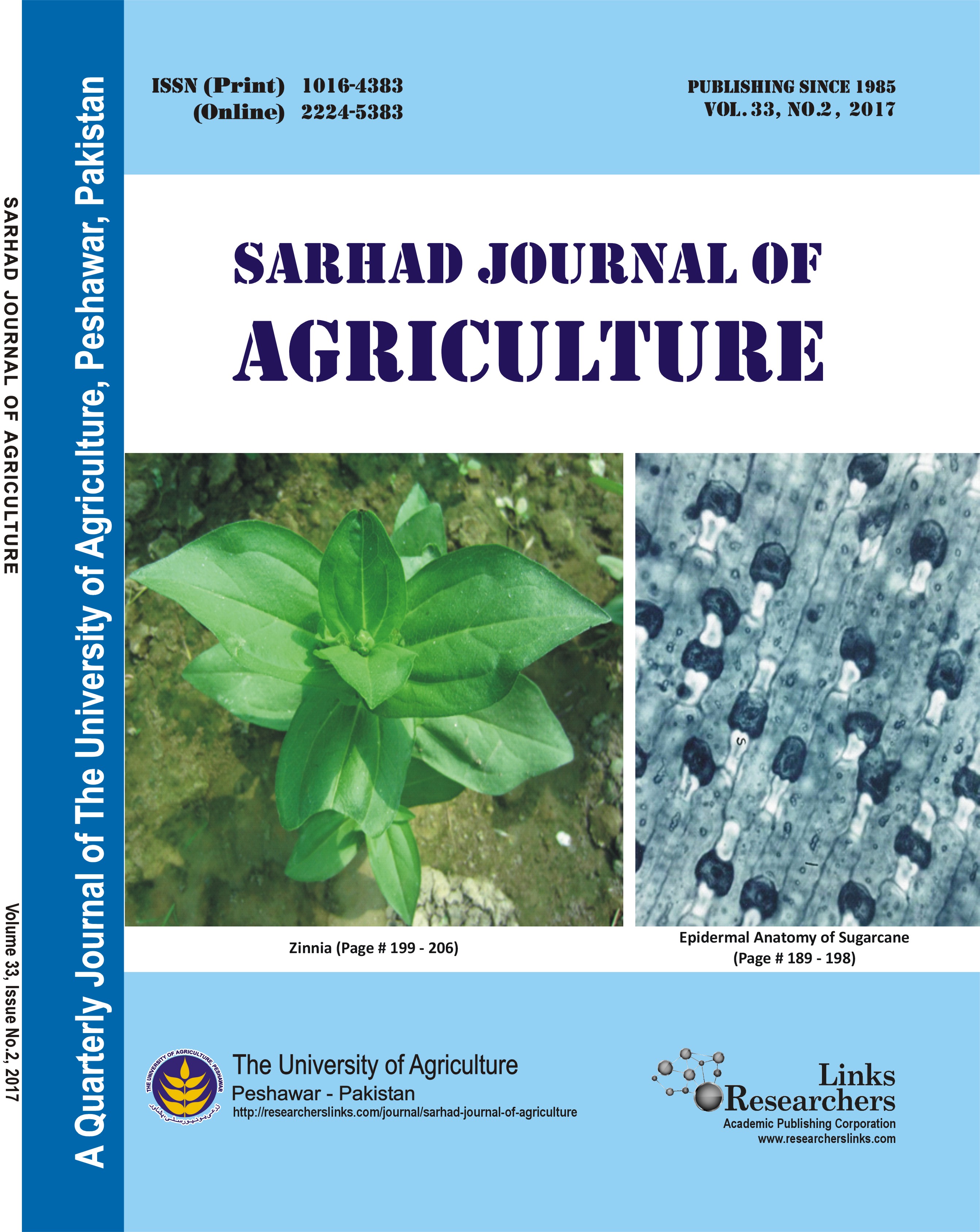Determinants of Non-Timber Forest Products Collection and its Contribution to Rural Household’s Income in District Swat
Determinants of Non-Timber Forest Products Collection and its Contribution to Rural Household’s Income in District Swat
Ibrarul-Haq* and Malik Muhammad Shafi
ABSTRACT
Non-Timber Forest Products (NTFPs) plays a vital role in driving the economy of people who inhabits within or near forests. This study aims to examine how the NTFP’s collection affects the rural households’ income in district Swat, Pakistan. In addition, the factors of household’s participation in the study area were also identified. The relationship among the household’s income from of the NTFP’s collection and age of the household head, level of education, distance between the forest and home, household size, landholding size, capacity of livestock herd for individual holding (number of livestock held), number of adult males, female and female headed household has been calculated through various econometric techniques. Empirical evidence from several forest based communities across the globe suggests that NTFP’s collection contribute significantly to household’s income. A total of 410 households were randomly selected for data collection from upper two tehsils of the district Swat. Data were collected from the selected sample households using simple random sampling technique with the help of well-structured and self-administered questionnaires. The study has employed multiple regression model to estimate the relationship amongst the variables. The empirical estimation indicates that all variables except household’s size and agriculture land holding have shown positive and significant influence on income from the NTFP’s. Household’s size and agricultural landholding were found negatively associated with household’s income from the NTFP’s. The study identified major problems during field visits and data collection, which includes over exploitation of forest resources through severe grazing, deforestation, fuel wood collection, agricultural and residential encroachment, climate change, weak monitoring, etc. The study recommends that public and private sector organizations should provide financial and technical support for the NTFP’s promotion in the forest based communities in the country.
To share on other social networks, click on any share button. What are these?







